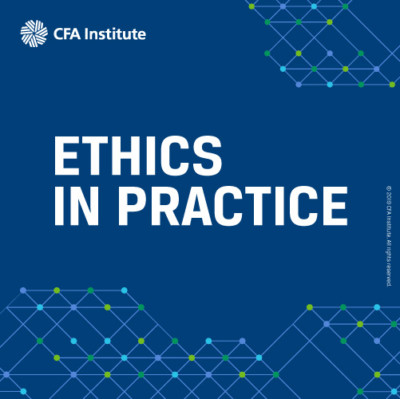Ethics in Practice: Acquisition Information. Case and Analysis–Week of 22 April
Check the analysis of this week’s case (22 April) to see if you made the right choice.
Case
Peter Cho, an accountant in a fund management company, lives with his fiancée Annie Wang, an investment banker with a global bank. In view of their proximity, Wang cautioned Cho that her work involves confidential material and advised him not to divulge what he may pick up from her work to anyone.
During a weekend holiday, Cho overheard an acquisition deal which Wang was working on. He decided to buy small quantities of the derivatives of the target stock instead of the stock of the target company. The profit from the transaction would help defray expenses of their impending marriage. Both the derivative and the stock did not come under the restricted list of Cho’s employer; and Cho was not yet married to Wang. He went ahead with the purchase, but to his disappointment, the transaction netted him a loss instead.
Cho’s actions are
- acceptable because he bought the derivatives instead of the stock.
- acceptable as long as he does not divulge the acquisition information to others.
- acceptable only because he suffered a loss.
- acceptable because he is merely engaged to Wang.
- none of the above.
Analysis
Cho was clearly in possession of material nonpublic information when he overheard Wang’s conversation. CFA Institute Standard II(A): Material Nonpublic Information says that CFA Institute members who possess material nonpublic information that could affect the value of an investment must not act or cause others to act on the information. Although Cho bought the derivatives instead of the stock, he is deemed to have acted upon the information.
Even though Cho did not divulge the information to others, thus causing others to act, his decision to act on the information was a clear violation of Standard II(A). Although the transaction did not yield a profit, the loss Cho suffered is irrelevant. The intent was clear. He wanted to profit from the transaction. And he acted upon it.
Whether Cho obtained the information from a total strange or from his fiancée is also irrelevant. Cho came into possession of material nonpublic information, and he should not have acted on it. Wang could have exercised tighter control on her communications to maintain confidentiality. A firewall should have been erected between her work and her personal life at home as well as on holiday. Although her investment actions would no doubt have been subject to close pre- and post-trade monitoring, Wang could have offered her fiancée’s portfolio for scrutiny.
When Cho came into possession of material nonpublic information, he should have communicated this to designated supervisory and compliance personnel in his company. The same should have been done on Wang’s part. Cho must not take investment action on the information or knowingly engage in any conduct that may induce others to privately disclose material nonpublic information. Choice E is the only response.
This case was written by Vineet Vohra, CFA, and Chan Fook Leong, CFA, and is based on a December 2018 Enforcement Action by the US Securities and Exchange Commission.
Let us know what you think of Ethics in Practice by taking this short survey.
Have an idea for a case for us to feature? Send it to us at [email protected].
More About the Ethics in Practice Series
Just as you need to practice to become proficient at playing a musical instrument, public speaking, or playing a sport, practicing assessing and analyzing situations and making ethical decisions develops your ethical decision-making skills. The Ethics in Practice series gives you an opportunity to “exercise” your ethical decision-making skills. Each week, we post a short vignette, drawn from real-world circumstances, regulatory cases, and CFA Institute Professional Conduct investigations, along with possible responses/actions. We then encourage you to assess the case using the CFA Institute Ethical Decision-Making Framework and through the lens of the CFA Institute Code of Ethics and Standards of Professional Conduct. Then join the conversation and let us know which of the choices you believe is the right one and explain why. Later in the week, we will post an analysis of the case and you can see how your response compares.
Image Credit: ©CFA Institute


E
E regarding material nonpublic information